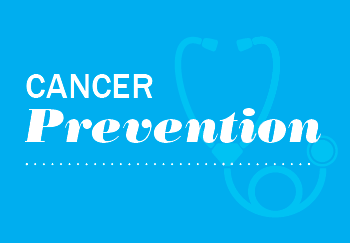 There’s a lot of confusion about nitrates and cancer. After all, you’ve probably read that nitrates are bad and that a preservative found in processed meat is linked to an increased risk of cancer and heart disease. Plus, supermarket shelves are lined with “nitrate-free” or “no added nitrate” packages of hot dogs, sausage, bacon and deli meat.
There’s a lot of confusion about nitrates and cancer. After all, you’ve probably read that nitrates are bad and that a preservative found in processed meat is linked to an increased risk of cancer and heart disease. Plus, supermarket shelves are lined with “nitrate-free” or “no added nitrate” packages of hot dogs, sausage, bacon and deli meat.
So what’s the truth about nitrates and cancer? Should you be cutting them out of your diet?
What Are Nitrates?
Nitrates are naturally occurring compounds found in soil, water and plants — even the human body produces nitrates. But they’re most commonly known as a preservative used in processed and cured meats like ham, bacon, pastrami, hot dogs, sausages and salami. For example, sodium nitrate, a natural salt, inhibits the growth of bacteria and reduces the risk of food-borne illnesses.
But scientists discovered that there may be a link between nitrates and cancer. “When meat is cooked at super high temperatures, they think that cancer-causing compounds are formed,” said Carole Havrila, registered dietitian and certified oncology specialist at UVA Cancer Center. She says that processed meats are associated with an increased risk of colon, gastric and esophageal cancer, as well as heart disease. In 2015, the World Health Organization indicated that for every 50 grams of processed meat eaten daily, your risk for colorectal cancer increases by 18 percent.
Not All Nitrates Are Bad
Processed meats aren’t the only source of nitrates in your diet. According to the American Journal of Clinical Nutrition, 80 percent of dietary nitrates come from vegetables, particularly celery, beets, cabbage and leafy greens. Plants pick up nitrates from soil, nitrogen-based fertilizer, water and even the nitrogen in the atmosphere.
Here’s the twist: A study published in the Journal of Nutrition suggests consuming dietary nitrates can reduce blood pressure. That’s because your body converts nitrates consumed from plants into nitric oxide, which relaxes blood vessels and increases blood flow. “Vegetables have so many other protective compounds that the nitrates don’t seem to pose the same risk as meats do,” said Havrila.
Looking for Dietary Advice?
Meeting with one of UVA’s registered dietitians can help you round out your diet and ensure you’re staying as healthy as possible.
The Bottom Line
Nitrates themselves aren’t a bad thing. It’s those linked to processed meats that can be problematic, but that doesn’t mean you have to cut out all processed meat from your diet cold turkey. Havrila says you can enjoy bacon, sausage and cured meats once in a while. “Think of it as something you do on a special occasion,” she said, rather than eating them every day.
If you’re someone who eats sandwiches with deli meat every day, switch it up. “Find other things that you can sub in for your lunch meat,” said Havrila. Tuna or salmon salad, hummus, beans or even peanut butter and jelly are all great alternatives to deli meat. If you’re a die-hard meat fan, Havrila says you can roast a chicken or cook a turkey breast at the beginning of the week and slice it for your daily sandwich. Even packages labeled “nitrate-free” still contain preservatives that you may not want to put in your body.
Additionally, make sure you’re eating your vegetables. They have numerous cancer-preventing nutrients and can nourish your body with healthy nitrates. If you have questions about nitrates and cancer or need more ideas for how to change up your daily diet, talk to a registered dietitian who can work with you one-on-one or connect you with additional resources.
